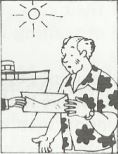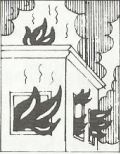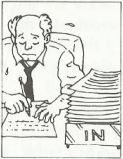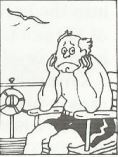

Grammar


Tenses


Present

Present Simple

Present Continuous

Present Perfect

Present Perfect Continuous


Past

Past Simple

Past Continuous

Past Perfect

Past Perfect Continuous


Future

Future Simple

Future Continuous

Future Perfect

Future Perfect Continuous


Parts Of Speech


Nouns

Countable and uncountable nouns

Verbal nouns

Singular and Plural nouns

Proper nouns

Nouns gender

Nouns definition

Concrete nouns

Abstract nouns

Common nouns

Collective nouns

Definition Of Nouns

Animate and Inanimate nouns

Nouns


Verbs

Stative and dynamic verbs

Finite and nonfinite verbs

To be verbs

Transitive and intransitive verbs

Auxiliary verbs

Modal verbs

Regular and irregular verbs

Action verbs

Verbs


Adverbs

Relative adverbs

Interrogative adverbs

Adverbs of time

Adverbs of place

Adverbs of reason

Adverbs of quantity

Adverbs of manner

Adverbs of frequency

Adverbs of affirmation

Adverbs


Adjectives

Quantitative adjective

Proper adjective

Possessive adjective

Numeral adjective

Interrogative adjective

Distributive adjective

Descriptive adjective

Demonstrative adjective


Pronouns

Subject pronoun

Relative pronoun

Reflexive pronoun

Reciprocal pronoun

Possessive pronoun

Personal pronoun

Interrogative pronoun

Indefinite pronoun

Emphatic pronoun

Distributive pronoun

Demonstrative pronoun

Pronouns


Pre Position


Preposition by function

Time preposition

Reason preposition

Possession preposition

Place preposition

Phrases preposition

Origin preposition

Measure preposition

Direction preposition

Contrast preposition

Agent preposition


Preposition by construction

Simple preposition

Phrase preposition

Double preposition

Compound preposition

prepositions


Conjunctions

Subordinating conjunction

Correlative conjunction

Coordinating conjunction

Conjunctive adverbs

conjunctions


Interjections

Express calling interjection

Phrases

Sentences


Grammar Rules

Passive and Active

Preference

Requests and offers

wishes

Be used to

Some and any

Could have done

Describing people

Giving advices

Possession

Comparative and superlative

Giving Reason

Making Suggestions

Apologizing

Forming questions

Since and for

Directions

Obligation

Adverbials

invitation

Articles

Imaginary condition

Zero conditional

First conditional

Second conditional

Third conditional

Reported speech

Demonstratives

Determiners


Linguistics

Phonetics

Phonology

Linguistics fields

Syntax

Morphology

Semantics

pragmatics

History

Writing

Grammar

Phonetics and Phonology

Semiotics


Reading Comprehension

Elementary

Intermediate

Advanced


Teaching Methods

Teaching Strategies

Assessment
Enjoy your vacation
المؤلف:
L.A Hill
المصدر:
Intermediate anecdotes in American English
الجزء والصفحة:
20-1
15/9/2022
1233
Mr. Young owned his own business and worked very hard. His wife was afraid that he would get sick if he continued like that, so she often tried to get him to take a vacation. At last she managed to persuade him to do this, but she was afraid that he might not be able to enjoy his vacation quietly, so before they left, Mrs. Young went to see her husband's secretary. She said to her, "My husband needs a vacation very much, so whatever happens, please don't bother him with telegrams and letters about business problems while we're away. Just wait till we get back."
After Mr. and Mrs. Young had been away about a week, Mr. Young received a letter from his secretary which said, "Something terrible has happened to your business, but I'm not going to bother you with it now while you're enjoying your vacation."
A. Answer these questions:
- Who did Mr. Young work for?
- What was his wife afraid of?
- What did she want her husband to do?
- What did she ask his secretary to do?
- What did the secretary write in her letter to Mr. Young?
- Do you think he enjoyed his vacation after that?
B. Which of these sentences are true? Write down the correct ones.
- Mr. Young worked hard for another person
- Mr. Young worked for himself.
- His wife didn't want him to take a vacation.
- His wife wanted him to take a vacation.
- She didn't want his secretary to write to him about business problems.
- She wanted his secretary to send telegrams and letters if there were any business problems.
- The secretary wrote to Mr. Young soon after he left.
- The secretary did not write to Mr. Young, because she didn't want to bother him.
- Mr. Young didn't know that anything was wrong until he got back.
- Mr. Young knew that there was something wrong, but he didn't know what it was until he got back.
C. Write the number of the correct sentence under each picture:

1-Mr. Young received it at the first port.

2-Mr. Young's office burned down.

3-Mr. Young worked hard in his office.

4-Then he worried during the rest of his vacation.
 الاكثر قراءة في Intermediate
الاكثر قراءة في Intermediate
 اخر الاخبار
اخر الاخبار
اخبار العتبة العباسية المقدسة

الآخبار الصحية















 قسم الشؤون الفكرية يصدر كتاباً يوثق تاريخ السدانة في العتبة العباسية المقدسة
قسم الشؤون الفكرية يصدر كتاباً يوثق تاريخ السدانة في العتبة العباسية المقدسة "المهمة".. إصدار قصصي يوثّق القصص الفائزة في مسابقة فتوى الدفاع المقدسة للقصة القصيرة
"المهمة".. إصدار قصصي يوثّق القصص الفائزة في مسابقة فتوى الدفاع المقدسة للقصة القصيرة (نوافذ).. إصدار أدبي يوثق القصص الفائزة في مسابقة الإمام العسكري (عليه السلام)
(نوافذ).. إصدار أدبي يوثق القصص الفائزة في مسابقة الإمام العسكري (عليه السلام)


















